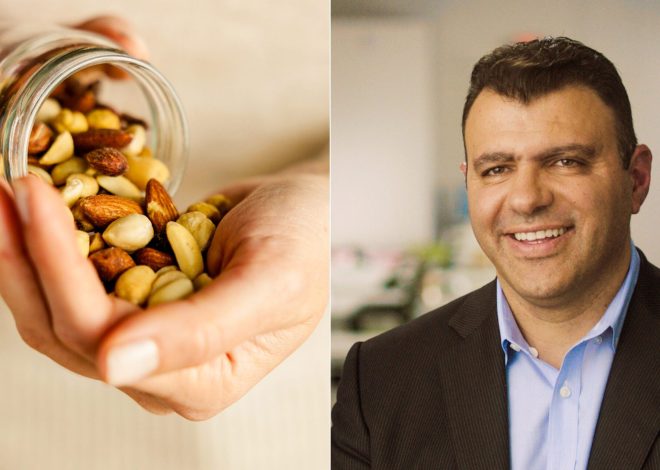
What’s wrong with nutrition myths?
Coffee removes water from the body – and fruit should be eaten with the peel on. Many people are familiar with these and other nutritional myths. But not all of them have any truth.
Trials and confusion are almost part of the topic of nutrition. Whether something is healthy or not – there are nutritional myths floating around in the media and the Internet. But what exactly does that mean?
The Paderborn nutritionist Lars Libuda sees them as rules for eating behavior that are not based on scientific findings. If they are known to larger parts of the population and may even be used, one could speak of nutritional myths.
The reasons for the spread are diverse: Among other things, it could be that new findings from studies are being overinterpreted, says the professor at the Institute for Nutrition, Consumption and Health at the University of Paderborn. It cannot be ruled out that individual points were intentionally placed or at least kept alive.
Some foods are enriched with vitamins to make them appear particularly healthy. “Then this myth that we all have a deficiency in various vitamins and therefore need such fortified products can definitely help the product sell better.”
Fact check Nutrition myths
But what happens when you check the truth of nutritional myths? Do some turn out to be errors or even lies?
Claim: Certain fruits and vegetables such as apples or cucumbers should not be peeled. Because there are a lot of vitamins under the shell.
Evaluation: Correct. Philine Lenz, consultant at the Federal Center for Nutrition (BZfE), says: “That’s actually the case.” Of course, the vitamins and minerals are not only contained in the peel, but in the whole fruit and vegetables. But the portion under the shell is one of the highest. “And that’s why it’s best to eat them unpeeled.”
If you rinse such fruits and vegetables thoroughly and rub them with a cloth, you can be quite sure that the food is free of dirt and any pesticide residues.
Claim: Gluten-free products are healthier than those containing gluten.
Evaluation: Inaccurate. That is generally not true. People with intolerance or intolerance to gluten should pay attention to a gluten-free diet. But others have no proven benefits from such a diet, according to a report from Harvard Medical School. According to the German Nutrition Society (DGE), eliminating individual foods without a diagnosed intolerance can even increase the risk of nutrient deficiencies and lead to health problems in the long term.
In general, it is better to eat fruits and vegetables in one go.
Claim: A smoothie is just as healthy as fruit and vegetables in one piece.
Evaluation: Inaccurate. It is true that a smoothie can occasionally replace a portion of fruit and vegetables. The DGE also gives this tip. However, it is generally better to eat these foods in one go. Because chewing makes you spend longer, and the larger volume contributes more to satiety, says BZfE speaker Lenz. According to her, a certain proportion of ingredients can be lost in smoothies from the supermarket through processing, transport and storage. Nevertheless, it is better to have a smoothie than no fruit or vegetables at all.
Claim: Coffee removes water from the body.
Evaluation: Incorrect. The state of science on this topic has changed in recent years. Coffee does have a diuretic effect. However, according to Lenz, the description of coffee as a “liquid robber” is outdated. You can cover some of your daily fluid needs with coffee. The DGE also sees it that way. However, according to the BZfE, you shouldn’t drink more than four to five cups a day.
Claim: Spinach contains a particularly high amount of iron.
Evaluation: Incorrect. Fresh spinach has a similarly high iron content as other dark green leafy vegetables, around 2.7 milligrams per 100 grams.
Once processed, spinach can easily be reheated a day later. It is important that it is cooled down quickly beforehand and stored cool in a clean container. But this applies to any dish that needs to be reheated.
Claim: Eggs increase cholesterol levels.
Evaluation: Inaccurate. It’s true that egg yolks are rich in fat and cholesterol – but at the same time, eggs also contain biologically high-quality protein and other essential nutrients. In healthy people, eating eggs has little effect on blood cholesterol levels.
The amount of total fat consumed and the type of fat are decisive for the value. The unsaturated fatty acids, which are mainly found in plant foods and fatty fish, are good for your health.
Although egg yolks are rich in cholesterol, the amount of total fat consumed and the type of fat determine the level of cholesterol.
Claim: Carrots strengthen eyesight.
Evaluation: Not really. Carrots contain many important vitamins and minerals – such as beta-carotene, which the body converts into vitamin A. This in turn is important for the function of the eyes, especially the retina. But it is not enough to improve vision.
Claim: Better leave beer on wine!
Evaluation: Not true! It doesn’t matter in which order you consume beer and wine. The hangover the next morning depends entirely on the amount and quality of alcohol consumed.
Distrust of simple solutions to complex problems
But what can consumers do if they don’t know what to think of nutritional advice? Nutritionist Libuda says it is not easy for laypeople to correctly classify myths. He advises to be skeptical whenever simple solutions to complex problems are given.
The recommendations of specialist societies such as the DGE are also helpful. Checking whether nutritional advice can also be found there could be a first step in checking the question. If you don’t find anything there, you theoretically have to research the study situation, says Libuda. “That’s actually not affordable for the average consumer.” You should be careful if a product is advertised alongside the nutritional advice: “Then I would be skeptical, I have to say.”

Ethel Purdy – Medical Blogger & Pharmacist
Bridging the world of wellness and science, Ethel Purdy is a professional voice in healthcare with a passion for sharing knowledge. At 36, she stands at the confluence of medical expertise and the written word, holding a pharmacy degree acquired under the rigorous education systems of Germany and Estonia.
Her pursuit of medicine was fueled by a desire to understand the intricacies of human health and to contribute to the community’s understanding of it. Transitioning seamlessly into the realm of blogging, Ethel has found a platform to demystify complex medical concepts for the everyday reader.
Ethel’s commitment to the world of medicine extends beyond her professional life into a personal commitment to health and wellness. Her hobbies reflect this dedication, often involving research on the latest medical advances, participating in wellness communities, and exploring the vast and varied dimensions of health.
Join Ethel as she distills her pharmaceutical knowledge into accessible wisdom, fostering an environment where science meets lifestyle and everyone is invited to learn. Whether you’re looking for insights into the latest health trends or trustworthy medical advice, Ethel’s blog is your gateway to the nexus of healthcare and daily living.



